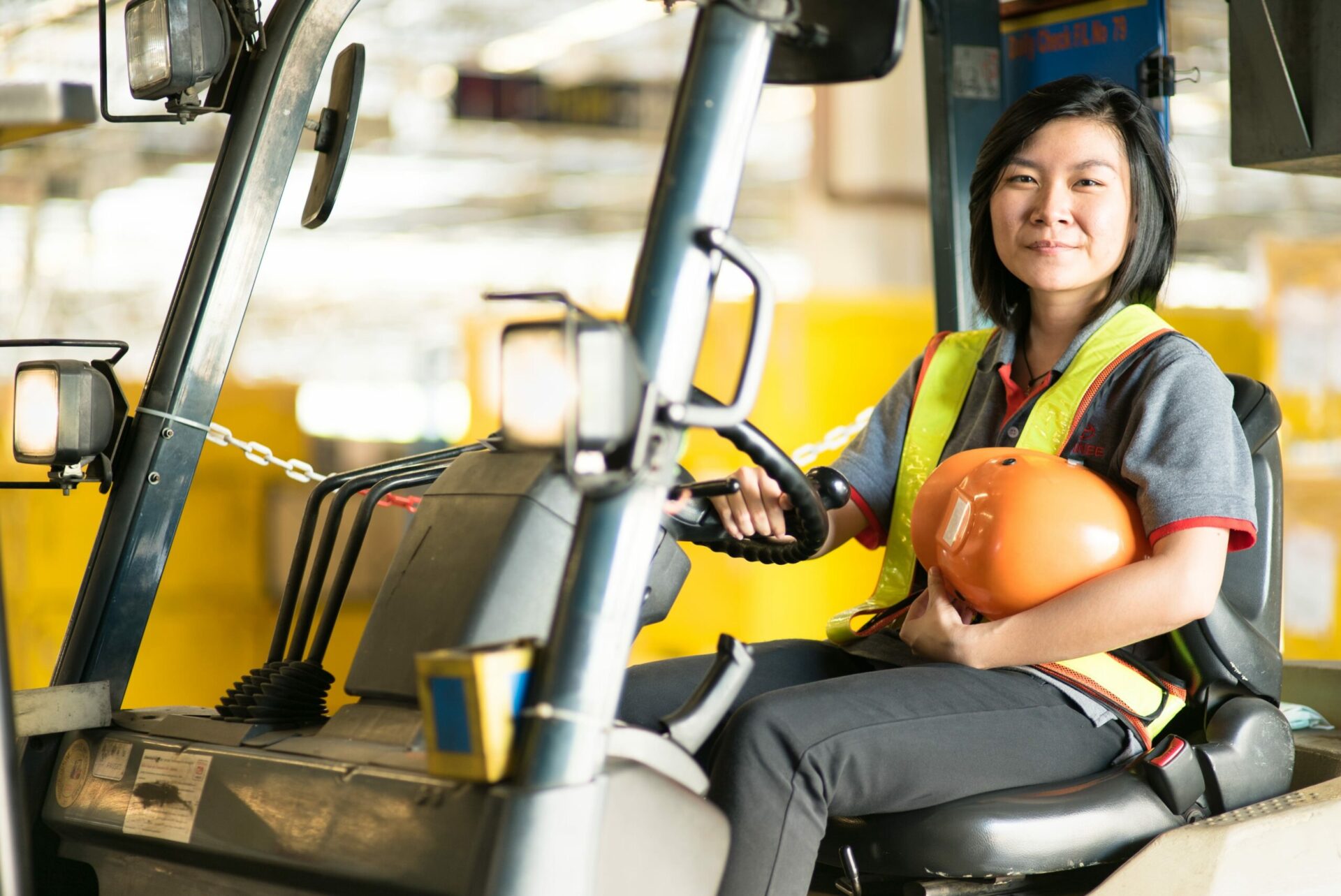When it comes to forklift driver training, there’s a fascinating paradox that few people understand: the difference between competence and mastery isn’t just about time spent behind the controls. In Singapore’s bustling logistics sector, where every minute counts and safety is paramount, this distinction becomes increasingly crucial.
The Hidden Pattern Behind Forklift Accidents
According to the Workplace Safety and Health Council Singapore, material handling equipment, including forklifts, accounts for approximately 25% of workplace accidents. But here’s what’s interesting: experience level isn’t always the determining factor. Some of the most serious incidents involve operators with years of experience who’ve developed what psychologists call “routine expertise.”
The Three Pillars of Mastery
Research in cognitive psychology reveals three critical elements:
- Deliberate Practice
- Situational Awareness
- Adaptive Expertise
Why Traditional Training Often Falls Short
The conventional approach to forklift operation follows a predictable pattern:
- Basic theory (16 hours)
- Practical training (8 hours)
- Assessment (4 hours)
But here’s the counterintuitive truth: completing these hours doesn’t automatically create a skilled operator.
The Singapore Standard: A Case Study in Excellence
Singapore’s stringent requirements for forklift operators reflect an understanding of this complexity:
- Mandatory certification from accredited training providers
- Minimum 18 years of age
- Valid Class 3 driving licence
- Medical fitness certification
- Regular refresher training
The Psychology of Spatial Awareness
What makes truly exceptional forklift operators different? Studies from the Singapore Logistics Association reveal that top performers share specific cognitive traits:
- Enhanced peripheral vision
- Superior depth perception
- Excellent hand-eye coordination
- Advanced spatial reasoning
- Quick decision-making abilities
The Technology Factor
Modern forklift training has evolved beyond basic operations:
- Virtual Reality simulators
- Real-time performance analytics
- Scenario-based learning modules
- Digital assessment tools
- IoT-enabled tracking systems
Safety Statistics That Matter
Consider these numbers from the Ministry of Manpower:
- 60% reduction in accidents among properly trained operators
- 40% improvement in efficiency
- 30% decrease in equipment damage
- 25% increase in productivity
The Economic Imperative
The financial implications are significant:
- Average cost of forklift accidents: SGD 50,000
- Lost productivity costs: SGD 1,000 per day
- Equipment repair expenses: SGD 5,000-20,000
- Insurance premium increases: 15-30%
Breaking Down the Learning Curve
The journey to expertise follows a distinct pattern:
- Foundational Skills (0-3 months)
- Operational Competence (3-6 months)
- Situational Mastery (6-12 months)
- Advanced Expertise (12+ months)
Environmental Awareness Training
Singapore’s unique logistics environment requires specific knowledge:
- Indoor/outdoor operation protocols
- Weather condition responses
- Traffic management
- Load stability in various conditions
- Dock loading procedures
The Maintenance Connection
Understanding basic maintenance becomes crucial:
- Daily inspection requirements
- Common mechanical issues
- Warning signs of problems
- Emergency response procedures
- Preventive maintenance schedules
Communication Skills: The Hidden Requirement
Effective forklift operation isn’t just about driving:
- Hand signals proficiency
- Radio communication protocols
- Team coordination
- Emergency response communication
- Documentation procedures
The Future of Forklift Operations
Emerging trends are reshaping the industry:
- Autonomous vehicle integration
- AI-assisted operation
- Green energy adoption
- Smart warehouse systems
- Advanced safety features
Creating a Culture of Excellence
The most successful training programs focus on:
- Continuous learning
- Peer mentoring
- Regular assessments
- Performance feedback
- Safety consciousness
In Singapore’s rapidly evolving logistics landscape, the path to becoming an expert forklift operator requires more than just completing the requisite hours of training. It demands a combination of technical skill, psychological readiness, and environmental awareness. As technology advances and workplace safety standards become increasingly stringent, investing in comprehensive forklift driver training isn’t just about compliance—it’s about creating a foundation for operational excellence.

